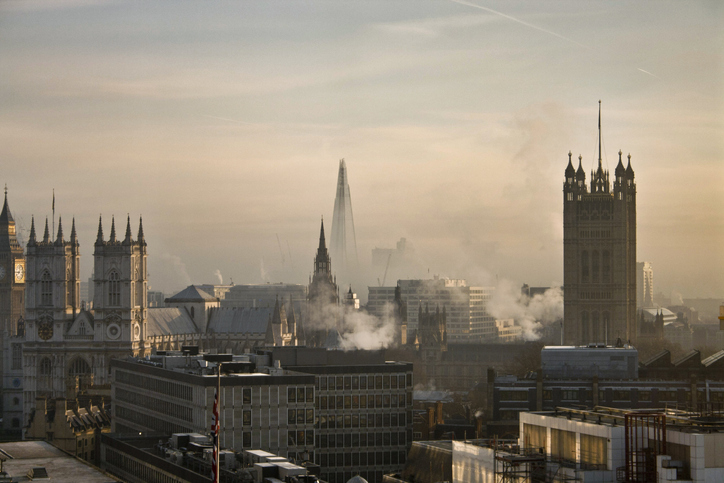
While Australian councils are teaming up to fight climate change, on the other side of the world there are fears that UK local bodies may be falling behind with calls for a more united front from government.

Julia King, Baroness Brown of Cambridge, sits in the UK’s upper House of Lords and on the Committee on Climate Change, which provides independent advice to the government on building a low carbon economy and preparing for climate change.
“Government is not yet addressing adequately all the climate risks it has itself identified as critical – including surface flooding and the impacts of high temperatures on health,” she says.
The committee’s 2019 report calls for more joined-up thinking from government, not only to reach net-zero emissions targets but to meet the needs of businesses and individuals alike.
Problems for people – and governments
Medical professionals are also calling for the government and national health service (NHS) to do more to mitigate the effects of climate change on health.
Nicky Philpott, UK Health Alliance on Climate Change (UKHACC) director, gives pollution as an example. She tells Government News: “People in socio-economically deprived groups are more adversely affected by pollution; they are more likely to live in areas where pollution levels exceed legal limits and less likely to be able to easily access specialist healthcare.”
Extreme weather events like floods, storms or heatwaves damage infrastructure and healthcare facilities and services. Social needs and behaviour can also be affected and influence health.
About 40,000 people a year die from air-pollution related causes alone in the UK each year, with health inequalities in general costing the NHS £20 billion ($AU36 billion) a year, she notes.
“Many drivers of climate change – fossil fuel combustion, unhealthy diets and poorly designed cities which make us reliant on cars rather than active transport – harm our health directly, through air pollution, high saturated fat intake or physical inactivity,” Philpott explains.
“Tackling climate change is an unprecedented opportunity to improve public health. It depends on embedding actions on climate change and sustainable development in policies across all sectors and everything we do.”
NHS England released its long-term action plan for the next five years in June, covering the changes it envisages to meet its goals within budget constraints.
Beyond halving its own carbon footprint by 2025, one key program is Healthy New Towns, connecting 12 developers of some 70,000 new homes with a set of principles for designing a healthier built environment. These principles will also be embedded into local authorities’ planning guidances.
London air quality concerns
London is home to some of the most deprived communities in Europe, and breached its EU-mandated air pollution limit for the year, every year, in Q1.

“London’s filthy air leads to thousands of premature deaths in the capital every year as well as stunting young lungs and increasing respiratory illnesses,” says Sadiq Khan, London’s mayor.
In January, the local authority deployed 100 fixed sensors across the city to measure and compare pollution levels, informing policy developments and actions including Khan’s decision to expand the Ultra Low Emission Zone to the North and South Circular roads by 2021.
Since the zone was implemented, central London has enjoyed a 20% reduction in emissions, with 9,400 fewer cars coming in every day.
It has also set up 10 low-emission bus zones and with Transport for London is looking at changes to bus and taxi services within pollution hotspots revealed by the data.
The data help quantify the benefits of individual acts such as driving less and choosing walking routes away from heavy traffic. Further data will be available later in 2019, according to the Mayor’s office.
Overarching moves
More broadly, the Mayor has signed off an overarching health inequalities strategy for London that promises to consider health inequalities in “everything it does”, with particular reference to sustainable development and climate change.
This will set a “direction of travel” for Greater London over the decade to 2028, to be considered in relation to and alongside strategies for planning, transport, housing, environment, culture and sport, economic development, and policing.
More could no doubt be done – the NHS, for instance, must work closely with local authorities in each part of the country to execute its plans. But UK councils, often struggling with a massive shortfall already, especially in deprived areas, are still waiting to learn their permitted spend over the next five years, as a local government finance and spending review revealed in August.
Meanwhile, successive central UK governments have ended solar tariffs, blocked onshore wind projects and cut energy efficiency funding for fuel-poor homes.
*Fleur Doidge reports for Government News from London.
Comment below to have your say on this story.
If you have a news story or tip-off, get in touch at editorial@governmentnews.com.au.
Sign up to the Government News newsletter